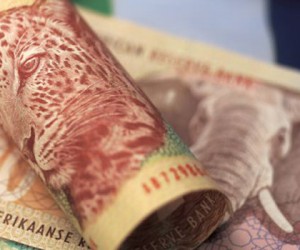South Africa President Jacob Zuma has invited businesses from the BRICS (Brazil, Russia, India, China and South Africa) countries to partner with Africa in its drive to develop the continent's infrastructure.
Addressing the first meeting of the BRICS Business Council in Johannesburg on Tuesday, Zuma noted that South Africa, as part of its push for increased regional integration and cross-border trade within Africa, was a strong promoter of both private and public sector investments on the continent.
"Over the last few years, the South African Reserve Bank approved nearly 1 000 large investments into 36 African countries."
Intra-African trade levels were still far below their potential, Zuma said, owing in large part to under-developed production structures and inadequate infrastructure - a major theme of the meeting between BRICS and African leaders at the 5th BRICS summit in Durban in March/April.
African infrastructure initiative
"In my capacity as the champion of the AU's [African Union's] Presidential Infrastructure Initiative, I warmly invite you to collaborate with us in realising the delivery of infrastructure on the continent," Zuma told the gathering of business leaders.
"We specifically champion the North-South corridor with its particular emphasis on road and rail infrastructure, initially from Durban to Dar es Salaam and ultimately from the Cape to Cairo."
Zuma noted that South African state corporations, including electricity utility Eskom and the Development Bank of Southern Africa, were already intensifying, or preparing to intensify, their investments in African infrastructure projects, particularly in electricity supply and road infrastructure.
The Industrial Development Corporation (IDC) had invested a total of R6.2-billion in 41 projects across 17 African countries in 2012, the bulk of these being in mining, industrial infrastructure, agro-processing and tourism.
Within South Africa, Zuma said, the government was on course to spend in excess of R4-trillion on infrastructure over the coming years, focusing on rail, roads, energy, water, sanitation and communication.
"There is a lot of scope indeed for mutually beneficial partnerships within the BRICS community which will create much-needed infrastructure in Africa," Zuma said, adding that Africa's success story augured well for the BRICS-Africa relationship.
African free trade area
The rate of return on foreign investment in Africa was already higher than in any other region in the world, Zuma said, and the continent's potential - given its mineral wealth, agricultural resources, young population and growing middle class - was enormous.
In addition, the East African Community (EAC), Common Market for Eastern and Central Africa (Comesa) and Southern African Development Community (SADC) were working on creating free trade area that would join the markets of 26 countries with a combined population of nearly 600-million people and a GDP of US$1-trillion.
This, Zuma said, "will form the basis for an Africa-wide free trade area, which could create a single market of 2.6-trillion US dollars."
Zuma noted that a key outcome of the BRICS summit in Durban had been the agreement to establish a BRICS development bank to help finance infrastructure development in the BRICS and other developing countries.
"BRICS leaders plan to meet again on the margins of the G20 Summit in Russia next month and we will consider the progress report from our finance ministers in this regard," Zuma said, adding: "I trust that this meeting will provide further impetus to the BRICS-led new development bank."








